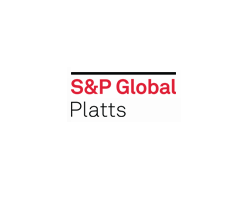Analysis: Coking Coal's 8% July Drop on Trade Worries, Not Steel Deman

By Hector Forster
August 3, 2018 - Trade jitters in China related to the US's push to impose tariffs and retaliatory measures to guard against a longer-term softening in Asia's biggest economy may have driven seaborne coking coal's 8% month-on-month decline in July.
China is largely self-sufficient in met coal, while it is more reliant on iron ore. Global steel demand for raw materials has surged on climbing utilization rates this year.
The TSI Premium HCC FOB Australia index fell to average at $182.25/mt in July, from $198.48/mt in June. With August still to run, the trailing quarter two-month period of June and July averaged at just under $190/mt FOB. The prior three-month quarterly benchmark period reference for some Q2 shipments was around $197/mt FOB, according to Canadian miner Teck Resources.
"Government policy changes, including tariffs and the potential for trade wars have created uncertainty in global markets and that threatens to slow global economic growth," Teck CEO Don Lindsay told analysts in a conference call July 26.
"And that in turn has [resulted in] a significant correction in commodity prices over the past few weeks."
Imported iron ore prices barely budged in July from June, as IODEX 62% fines averaged last month at $64.35/dry mt CFR China, and some high grade ore product prices rose. However, as freight rates increased, FOB netback pricing fell slightly, which traders and miners may have absorbed.
The weaker yuan and port restrictions around coal imports -- controlled via quotas for coal type, and some preference for thermal coal during peak power demand -- hit import pricing in July. Chinese coke prices fell, limiting some of the premium that had built up this year between underlying coal costs and met coke.
US President Donald Trump has said he is ready to impose tariffs on all $500 billion worth of Chinese products imported into the US, adding to earlier global tariffs on steel and aluminum, and $50 billion worth of Chinese goods which came into effect July 6.
Since then, China has threatened retaliation and has stopped publication of detailed trade data for the period-to-date since April. Late last month, Trump met with European Commission President Jean-Claude Junker and said he would work with the EU to minimize tariffs.
While the fall in coking coal pricing is a function of the uncertainty around tariffs and also the potential for trade war, the price is still close to the long-term average of around $180/mt FOB, Teck Coal Marketing VP Real Foley said on the call.
Teck, the second largest seaborne coking coal producer, said it saw coking coal demand in the market remaining "really, really strong," underpinned by buoyant global crude steel production in June.
"Customers are continuing to request additional tons, and that reflects, really, that stronger demand that we see on the coal side and on the steel side," Foley said.
Teck and other companies have noted the shift in seaborne coking coal demand, more over to India and newer growth hot spots in Europe and Asia, rather than China.
Chinese met coal imports have fallen compared to last year, but India is seen as growing faster, as are Eastern European imports and Southeast Asian needs, on top of higher demand in Brazil. Australian coking coal export growth rates to India in the first four months of the year were around 25% up on the year earlier, while to China, exports of high quality met coal had fallen 21%.
CoalZoom.com - Your Foremost Source for Coal News

